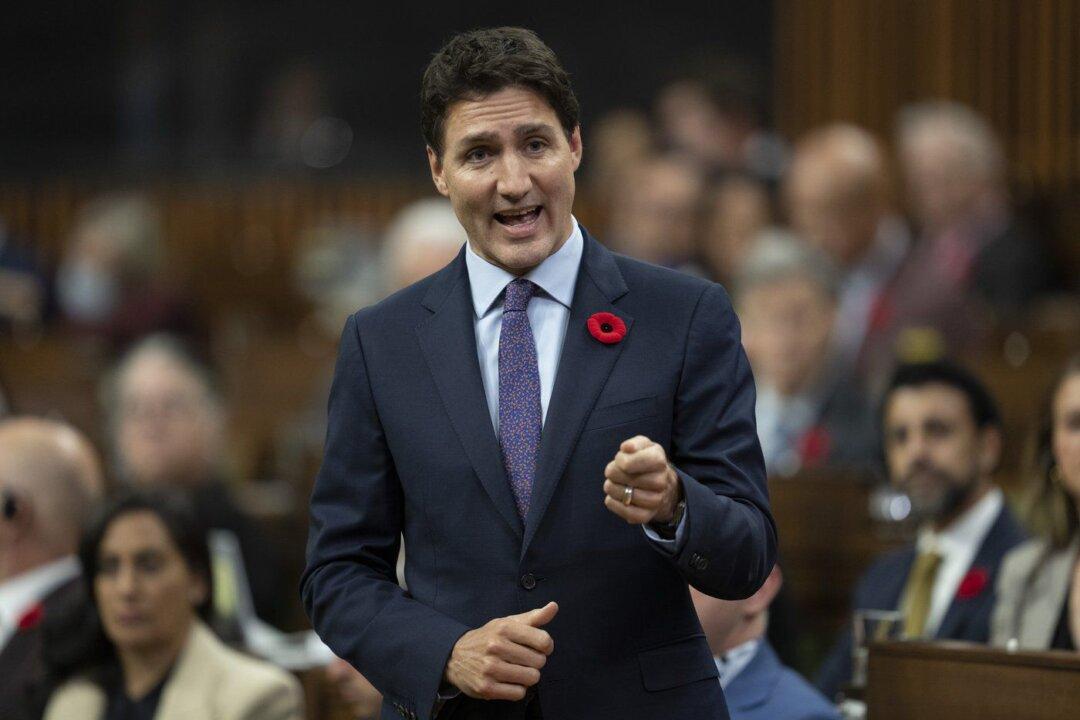The federal government is weighing possible courses of action it can take against the Ontario government’s use of the notwithstanding clause to prevent 55,000 provincial education workers from striking, says Prime Minister Justin Trudeau.
He briefly made the comment in French to reporters on Parliament Hill on Nov. 2, one day after he said that “using the notwithstanding clause to suspend workers’ rights is wrong.”





